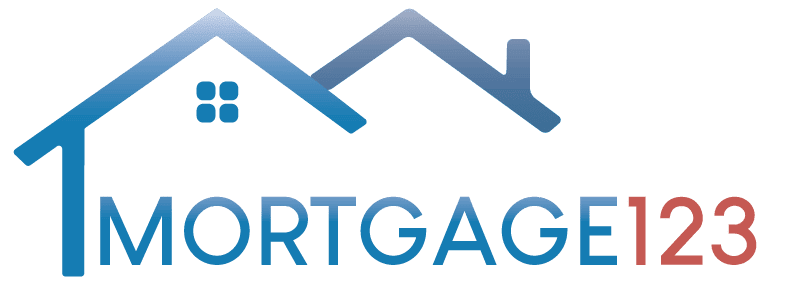The tracker mortgage scandal has been going on for nearly 12 years. It rekindled in 2019 with banks getting heavy penalties for overcharging customers. However, further cases are still being investigated. This is the scandal that just keeps giving – Permanent TSB recently admitted that another 200 customers were wrongly denied tracker mortgages. It comes three years after the bank was fined €21m by the Central Bank over its treatment of tracker mortgage customers.
1. Learn from the Past – So, what is the tracker mortgage scandal?
In simple terms, tracker mortgages became unprofitable for banks after 2011 when the European Central Bank interest rates fell close to 0%. Therefore, Irish banks resorted to not so customer friendly practices to switch mortgage holders to more expensive interest rates, such as fixed or variable. We will refresh what each mortgage rate means later in this blog post because it is one of the lessons to learn. So, read on and learn how you can protect yourself from getting into a bad mortgage deal.
Banks are Paying Heavy Fines over Tracker Mortgage Mishandling
To date, the Central Bank has issued a total of over €80mln of fines to Irish lenders. In March 2021, Ulster Bank paid the highest fine, a record €37.8 million. KBC Bank Ireland was fined €18.3 million in Sept 2020.
In May 2019, Permanent TSB was handed a €21 million fine for breaches that impacted on more than 2,000 of its customers as part of the wider tracker mortgage scandal. It is expected that other lenders responsible for this overcharging of customers will also face fines from the regulator.
AIB has set aside €70 million so far for likely fines, while Bank of Ireland has accounted €74 million. These two lenders are yet to be sanctioned in the ongoing investigation.
Why are the banks paying these fines?
The ombudsman’s investigation identified that banks failed to adequately warn tracker mortgage holders that by selecting a variable interest rate, they would lose the entitlement to the tracker interest. Back in 2006-2008, tracker mortgage rates were higher, and banks offered clients to move to fixed rate for a few years. The customers’ understanding was that they will get back on the original tracker mortgage after, but that is not what necessarily happened.
In many instances, banks would not return customers to their original tracker rates. Instead, customers paid higher fixed-rate and variable-rate loans.
Takeout: Do not sign blindly everything that is offered to you by your bank. Ask an independent mortgage broker for advice if in doubt, it is usually free.
2. Understand Mortgage Interest Rates
You will be a lot less likely to enter a bad mortgage deal if you understand how mortgage rates work. It is not that hard to get your head around; an independent broker is non-biased and will guide you through any options.
Variable mortgage rates
Variable rates offer flexibility. They allow you to pay extra off your mortgage and may, subject to lender approval, extend your mortgage term or top up your mortgage without having to pay any penalties. However, because variable rates can rise and fall, your mortgage repayments can go up or down during the term of your loan.
Standard variable rates
The banks set these rates based on various factors, such as cost of loans, loan risks, market competition, etc. The bank will have a Policy Statement of how they determine their variable rates. If you are on a variable rate, you can shop around for a better rate and even a cash back. This is what most people don’t do, and they should! Variable rates differ from lender to lender, so choose carefully.
Tracker variable rate/tracker mortgage
No longer available to new customers; however, they work as follows: they are set at a fixed percentage or ‘margin’ above the European Central Bank (ECB) rate. For example, ECB rate plus one percentage point. So, if the ECB rate rises by a percentage point, so does your rate. It will also ‘track’ the ECB rate when this rate goes down. If you switch from a tracker mortgage, you may not have the option to get a tracker rate again. So, you need to carefully consider your options.
Discounted rates/ Green rates
A Discounted rate is a temporary rate, set below the standard variable rate – such as green rates for buildings with an efficient BER. This is an incentive to new customers and gives you lower repayments for an initial period. At the end of that time, you have the option to go onto the fixed or variable rate on offer at that time. Before you accept a discounted offer, make sure you know what rate you will pay after the offer ends and how much it will cost you in total.
Fixed mortgage rates
Fixed mortgage rates are probably the most popular choice in 2022 with the rising inflation and expected increase in mortgage rates. With a fixed rate mortgage, your interest rate and monthly repayments are fixed for a set time. Fixed rates are commonly available from 2 to 30 years. Although a fixed rate means your repayments cannot increase for a set period, your repayments will not fall during the fixed rate period. As a result, you could miss out on lower interest rates and lower repayments. During the fixed rate period, you may face penalties if you want to switch lenders, move to a variable rate, or pay off all or part of your mortgage.
3. If in Doubt, Seek Advice from a Mortgage Broker!
Should you switch from your tracker rate with the expected rise in ECB interest rates? The jury is still out on that one. For now, it is best to wait and not rush into anything. Tracker mortgages are still at very good rates. However, should the tracker rates increase over the going fixed rates, switching to a long-term fixed rate may be a viable option.
Mortgage brokers are unbiased parties, who have access to a wide range of lender rates at their fingertips. This means, they can advise you on the best lender for your situation. You will not have to worry about the fine print or understanding mortgage jargon. In fact, checking the mortgage market every couple of years is recommended so that you make sure you are paying the best mortgage rate.
Read more on the benefits of using a mortgage broker here.
Mortgage123 does not usually charge a fee, so you are more than welcome for unbiased, expert advice. Even if you have an approval with a bank already, it is not too late to run it by us.

